Deputy Prime Minister Tran Hong Ha said that 2025 marks a historic milestone when the Ministry of Agriculture and Environment is officially established on the basis of merging the Ministry of Natural Resources and Environment with the Ministry of Agriculture and Rural Development to become a multi-sectoral ministry comprehensively managing natural resources and agricultural economic activities...
The backbone of the economy
Formed from industries and fields closely related to the life and culture of the nation, the Agriculture and Environment sector is proud to possess a long-standing tradition, making great contributions to the development flow of the country.
According to Deputy Prime Minister Tran Hong Ha, immediately after gaining independence, implementing President Ho Chi Minh's teaching: "Taking agriculture as the root", the sector proactively advised and organized to increase production, reclaim land and open fields, and arouse the strength of farmers. After only one year, famine was pushed back, creating the premise to maintain the revolutionary government; develop the armed forces, and expand the great national unity bloc.
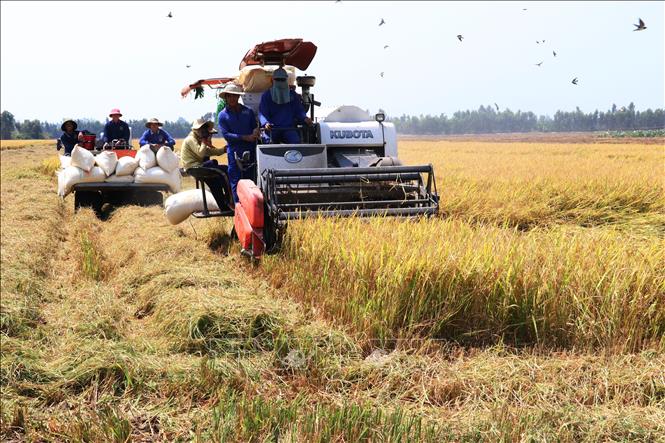
The solid foundation of agriculture and the combined strength of farmers contributed significantly to the success of the resistance war, liberating the South and unifying the country, opening an era of independence, freedom and unity.
The renovation process has created a historic turning point. The 100-contract policy and Resolution No. 10-NQ/TW on granting production rights and land allocation to farming households, along with strong reforms in land institutions, have liberated production resources. From a country with a lack of food, Vietnam has risen to become the world's leading agricultural exporter, maintaining national food security and making a major contribution to exports and economic growth.
As the country enters the period of industrialization, modernization and integration, agriculture continues to develop in both scale and production level, affirming its important position as a pillar of the economy, firmly ensuring national food security. Natural resources (land, minerals, forests, seas...) are managed and used effectively and sustainably, becoming important resources.
The lives of farmers and rural residents have been continuously improved, with convenient access to basic services and a rapid reduction in the poverty rate, which has been assessed by the United Nations as a "bright spot" in hunger eradication, poverty reduction and sustainable development. Also during this period, the sustainable development model has been given attention and promoted; establishing the important role of environmental protection and climate change response for the country's sustainable development.
New mission in the digital age
The current development context requires the industry to continue to innovate strongly, keeping up with global trends such as green economy, circular economy, digital economy; energy transition and net zero emissions reduction. Deputy Prime Minister Tran Hong Ha emphasized: The Ministry of Agriculture and Environment is assigned a great responsibility in the country's sustainable development. To fulfill that mission, the industry must have a comprehensive transformation in both thinking and action.
First of all, the Ministry of Agriculture and Environment needs to take the lead in establishing a new growth model; in which economic and social development and environmental protection are the center; science, technology, innovation, and digital transformation are the main driving forces... Promote restructuring of the growth model, strongly shifting from passive management thinking to development creation.
Focus resources on investigating and evaluating the country's important, strategic, and new resources to develop emerging economic sectors such as rare earths, new renewable energy, marine biology, and integrate them into the economy, manage them in a comprehensive manner, and effectively exploit their multi-purpose value.
The Agriculture and Environment sector needs to promote digitalization in leadership and management; apply artificial intelligence, big data analysis and remote sensing technology to monitor resources and forecast natural disasters in real time. “All strategic decisions must be based on data, scientific basis and practical basis,” the Deputy Prime Minister stated.
At the same time, investment in science and technology in potential fields such as biotechnology, renewable energy, marine economy, etc. will open up new economic sectors, ensure strategic resource security and enhance national position.
Another important pillar is to build new rural areas in a modern, ecological direction, preserving regional identity, and linking with urban development. This is done through planning new development spaces, attracting infrastructure investment and improving people's quality of life.
In the context of extensive globalization, the Ministry of Agriculture and Environment will continue to proactively integrate and protect national interests in cross-border issues such as water resources and climate change; at the same time, mobilize and effectively use international resources to serve green transformation.
The Deputy Prime Minister placed his full trust and expectation in each officer of the Ministry of Agriculture and Environment to continue to promote the spirit of solidarity, proactiveness, responsibility, innovation, creativity, and determination to strive to successfully complete the set goals and tasks. "Only then can we successfully transform serious challenges and move forward with the country in the new era," the Deputy Prime Minister shared.
Source: https://baotintuc.vn/xa-hoi/nganh-nong-nghiep-va-moi-truong-phai-doi-moi-manh-me-bat-kip-xu-huong-toan-cau-20251107134246790.htm




![[Photo] Da Nang: Hundreds of people join hands to clean up a vital tourist route after storm No. 13](https://vphoto.vietnam.vn/thumb/1200x675/vietnam/resource/IMAGE/2025/11/07/1762491638903_image-3-1353-jpg.webp)



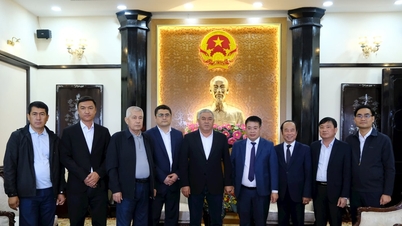

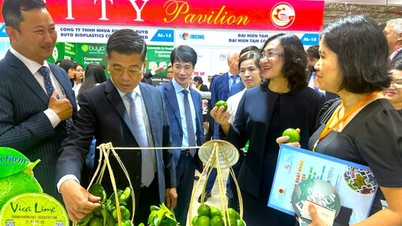

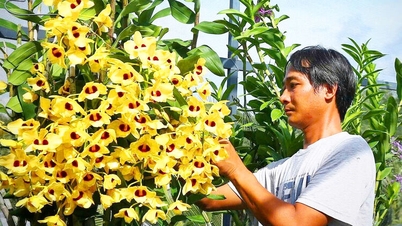

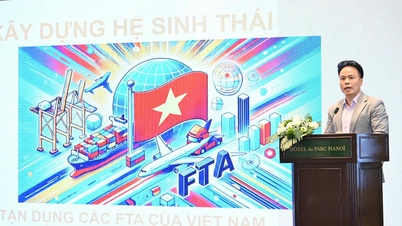

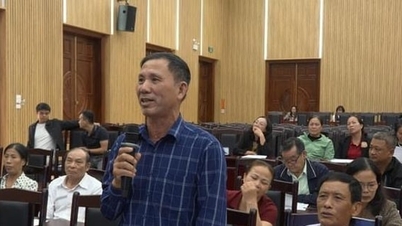

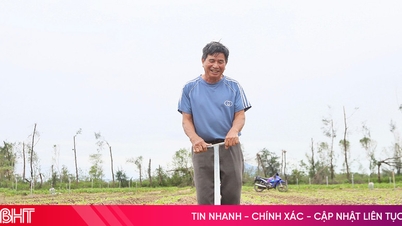



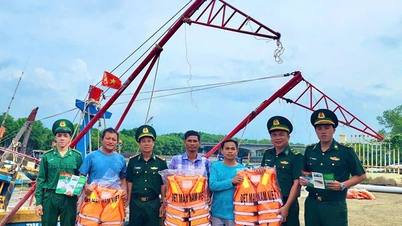

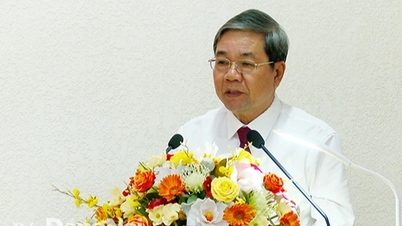

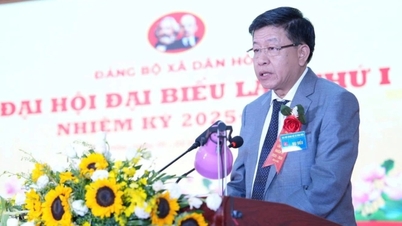






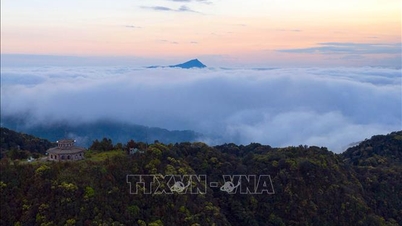
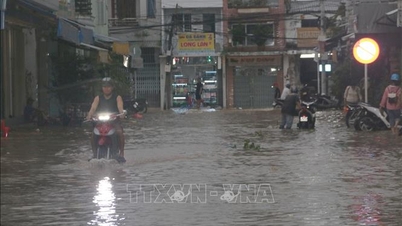
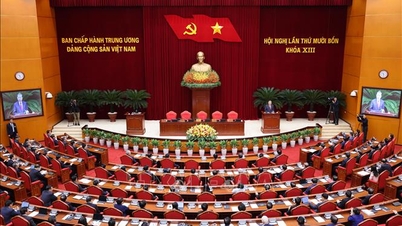
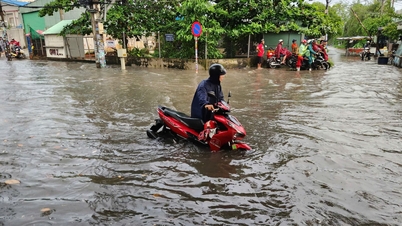
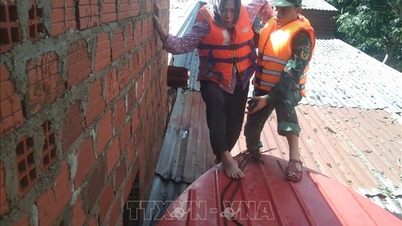








































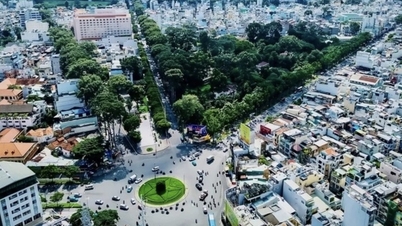







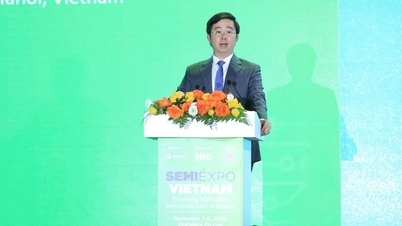

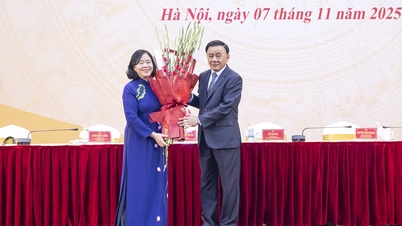


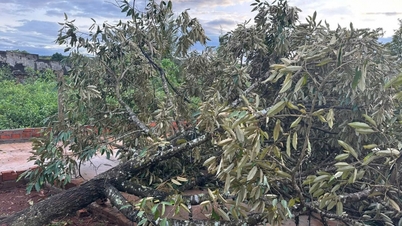




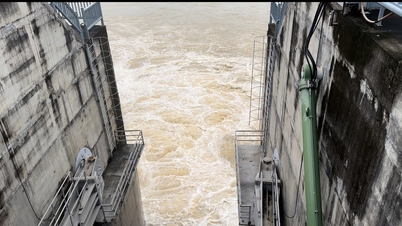

















Comment (0)